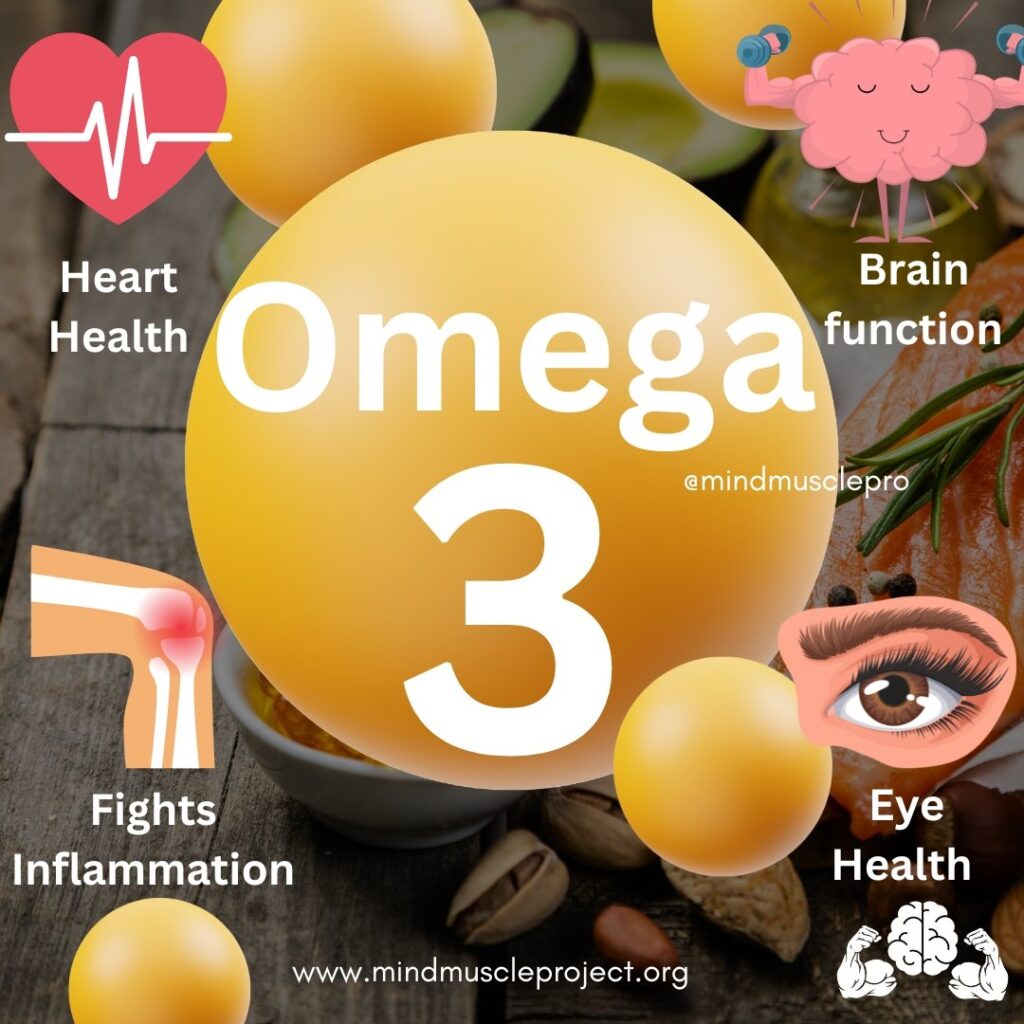Omega-3 fatty acids are essential fats that play a critical role in brain health, reducing inflammation, and supporting heart function. While widely celebrated, there is a lot of confusion around their dietary sources, forms, and supplementation. This guide will help you understand the different types of Omega-3s, how to optimize your intake, and why quality matters when choosing supplements.
Understanding Omega-3: ALA vs. EPA & DHA #
Not all Omega-3s are the same. They come in three main forms: ALA (Alpha-Linolenic Acid), EPA (Eicosapentaenoic Acid), and DHA (Docosahexaenoic Acid).
- ALA (Plant-Based Omega-3):
- Found in foods like walnuts, chia seeds, flaxseeds, and hemp seeds.
- While beneficial, ALA must be converted to EPA and DHA for the body to use it effectively.
- Conversion Rates:
- ALA to EPA: 2-5%
- ALA to DHA: Even lower
- EPA and DHA (Marine Omega-3s):
- Found primarily in fatty fish, eggs, and meat.
- These forms are bioavailable and directly usable by the body, making them superior to ALA.
Key Insight: Relying solely on ALA for Omega-3s is insufficient, especially for vegetarians, as the conversion process is inefficient and depends on adequate levels of co-factors like zinc, selenium, iron, and Vitamin B6.
Top Dietary Sources of Omega-3 #
For optimal health, focus on sources rich in EPA and DHA:
Best Sources: #
- Fatty fish (e.g., salmon, mackerel, tuna, sardines)
Decent Sources: #
- Eggs
- Meat
- Fortified dairy products
For Vegetarians: #
- Fortified plant-based foods (though limited in EPA/DHA)
- Algae-based supplements: The only vegetarian source of EPA and DHA.
The Role of Omega-3 Supplements #
If your diet lacks adequate EPA and DHA, supplementation becomes critical. Here’s what you need to know:
Omega-3 Supplement Forms: #
- Ethyl Ester Form:
- Common in cheaper supplements.
- Requires consumption with a fatty meal for proper absorption.
- Triglyceride Form:
- The natural form found in fish.
- Offers superior absorption and bioavailability.
Vegetarian Omega-3 Options: #
For vegetarians, algae-based supplements are an excellent source of both EPA and DHA, making them a suitable alternative to fish oil.
Quality Matters: #
- Many low-cost fish oil supplements are oxidized, which can cause harm rather than benefit. Always choose high-quality, reputable brands.
- Avoid supplements that don’t specify the form—if not mentioned, it’s likely the less effective Ethyl Ester form.
How to Maximize Omega-3 Absorption #
- Pair with Fat: If using the Ethyl Ester form, take the supplement with a fatty meal to improve absorption.
- Store Properly: Keep supplements in a cool, dark place to prevent oxidation.
- Choose Premium Brands: Look for certifications like “IFOS Certified” to ensure quality and purity.
Why Omega-3s Are Crucial for Health #
Omega-3s support a wide range of bodily functions, including:
- Brain Health: DHA is essential for cognitive function and development.
- Heart Health: EPA and DHA reduce inflammation, lower triglycerides, and improve cholesterol profiles.
- Anti-Inflammatory Benefits: Omega-3s play a critical role in reducing systemic inflammation, which is linked to chronic diseases.
Whether you’re vegetarian or non-vegetarian, optimizing your Omega-3 intake is essential for long-term well-being.
Key Takeaways #
- Dietary Sources: Fatty fish and eggs are the best dietary sources of EPA and DHA. For vegetarians, fortified foods and algae-based supplements are the only viable options.
- Choose High-Quality Supplements: Avoid cheap, oxidized fish oils. Prioritize the Triglyceride form for better absorption.
- Understand Plant-Based Omega-3 Limitations: ALA has poor conversion rates and cannot fully replace EPA and DHA.
By focusing on quality sources and making informed decisions about supplementation, you can ensure your body gets the Omega-3s it needs to thrive.





